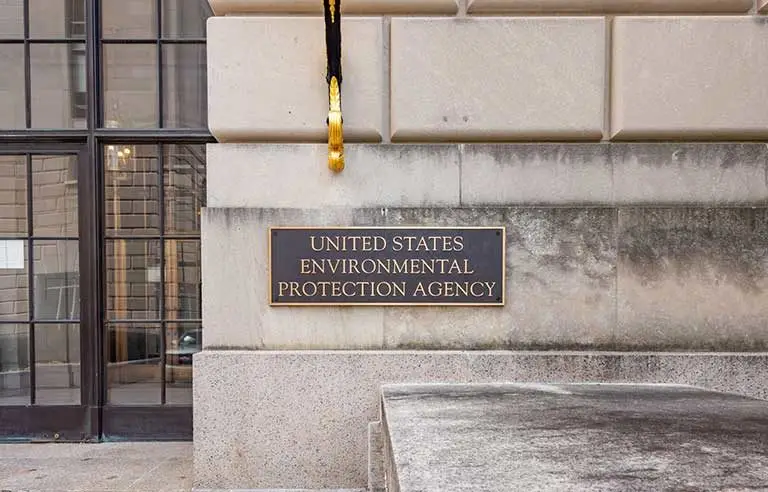
Washington — The Environmental Protection Agency has announced that it will consider scaling back rulemaking related to how it evaluates chemicals for risks to workers.
Finalized in May, the rulemaking expanded the scope of chemical risk evaluation policies under the Toxic Substances Control Act of 1976 by:
- Using a “whole substance” approach – which requires risk evaluations for different uses of a chemical to culminate in a single determination of whether the chemical presents “unreasonable” risk to workers.
- Expanding consideration of exposure pathways.
- Making clarifications to ensure EPA risk evaluations appropriately consider risks to workers.
- Eliminating consideration of exposure reduction based on workers’ assumed use of personal protective equipment.
In a March 10 press release, EPA says it will reassess how the agency evaluates chemicals and issue new rulemaking. The agency adds that it will gauge whether to continue using the “whole substance” approach and how PPE and industrial controls in work environments impact risk evaluations.
EPA administrator Lee Zeldin says in the release that the move “will allow EPA to develop a path forward to ensure a timely review of chemicals while bolstering our commitment to safeguard public health and the environment.”
The Frank R. Lautenberg Chemical Safety for the 21st Century Act, which amended the TSCA, requires EPA to address chemical risks by proposing – within one year of a chemical review’s release – regulatory actions such as training, certification, restricted access and/or ban of commercial use, and then accept public comment on any proposals.
EPA says it will provide further updates as they become available.
McCraren Compliance offers many opportunities in safety training to help circumvent accidents. Please take a moment to visit our calendar of classes to see what we can do to help your safety measures from training to consulting.
Original article published by Safety+Health an NSC publication


